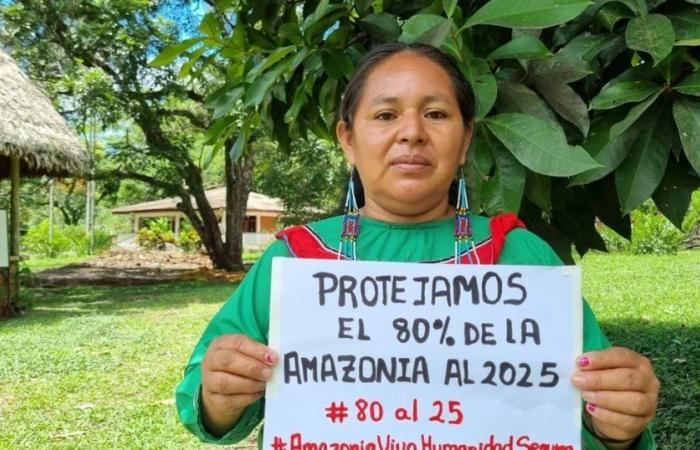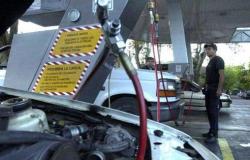
Only one of the six main banks that finance oil and gas extraction in the Amazon has an effective policy for the protection of the region, according to a recent report presented by Stand.earth and the Coordinator of Indigenous Organizations of the Amazon Basin (COICA). The study, titled “Ecological laundering in the Amazon”, was released on June 11, 2024 in Lime.
According to the document, an average of 71% of the Amazon is not adequately protected by the environmental and social risk management frameworks of five of the region’s main financiers: Citibank, JPMorgan Chase, Itaú Unibanco, Santander and Bank of America. This leaves vast expanses of the Amazon rainforest without adequate protection against climate risks, biodiversity loss and violations of the rights of Indigenous Peoples.
Only HSBC has adopted an effective policy by committing in December 2022 to exclude financing of oil and gas activities in the Amazon. “So far, no new HSBC transactions have been recorded in 2023,” according to the Stand.
The report also points out that the oil industry has caused serious environmental problems in Ecuador, Peru and Colombia, including more than 8,200 environmental liabilities and numerous oil spills. In Ecuador, 65% of indigenous territories coincide with oil and gas blocks, and more than 4,600 spills have been reported between 2006 and 2022. In Peru, oil and gas concessions cover 33% of indigenous territory, equivalent to 15.4 million hectares.
Jorge Pérez, president of the Interethnic Association for the Development of the Peruvian Jungle (AIDESEP), denounced the complicity of banks and companies in the destruction of the Peruvian Amazon. “We demand that JPMorgan Chase, Citibank and Bank of America take responsibility for the damage they are causing in the Peruvian Amazon,” Pérez said.
Additionally, the study reveals that 72% of all fossil fuel financing transactions do not adequately prioritize environmental and social values. This limits the precision in risk identification and the implementation of exclusion mechanisms and filters by banks.
The report urges banks to adopt geographic exclusions in all transactions related to the oil and gas sector in the Amazon. This measure, similar to the Arctic exclusions adopted in 2020, is proposed to be necessary to protect biodiversity and the rights of Indigenous Peoples, as well as mitigate climate change.
Citibank and JPMorgan Chase, the main North American banks, have financed the oil and gas sector in the Amazon with billions of dollars over the last two decades, according to a recent report. The research, based on Stand’s Database of Banks Operating in the Amazon, analyzes more than 560 financial transactions carried out by approximately 280 financial institutions in the region in the last 20 years.
Citibank has allocated 2,320 million dollars and JPMorgan Chase 2.25 billion dollars to direct financing of the sector in the Amazon. The report indicates that both banks use environmental and social risk management mechanisms that in many cases are ineffective. For example, Citibank’s geo-exclusion procedures cover only 2% of the Amazon and its additional filters cover another 44% of the region. JPMorgan Chase, for its part, financed new oil and gas production projects in Colombia with $126 million in 2023, and also allocated funds to Hunt Oil Peru, affecting indigenous communities.
The policy of Itaú Unibanco, the third largest financier, lacks exclusions and filters applicable to oil and gas operations in the region, making up 99% of its transactions without meeting the standards of the Equator Principles. Among the associated companies are Eneva, Border and Petrobras.
Santander Banka European financial giant, has contributed nearly $1.4 billion to the sector between 2009 and 2023. Although its exclusion policy covers 16% of the Amazon, it continues to lack transparency and accountability in its transactions, mostly syndicated bonds.
Finally, the report highlights the continuity of financing by Bank of America, the largest financier in the Amazon in 2023 according to “Banking on Climate Chaos”. Its environmental management policy does not affect the majority of its transactions in the region.
Since the Exit Amazon Oil and Gas campaign launched by Stand.earth, some entities such as BNP Paribas, Natixis, ING and Credit Suisse have committed to ceasing their financing related to the Amazon oil trade. However, leaders such as COICA’s Fany Kuiru and Stand.earth’s Todd Paglia are calling for stricter and more extensive implementation of total geo-exclusion policies in the Amazon to protect both indigenous communities and the region’s biodiversity.





